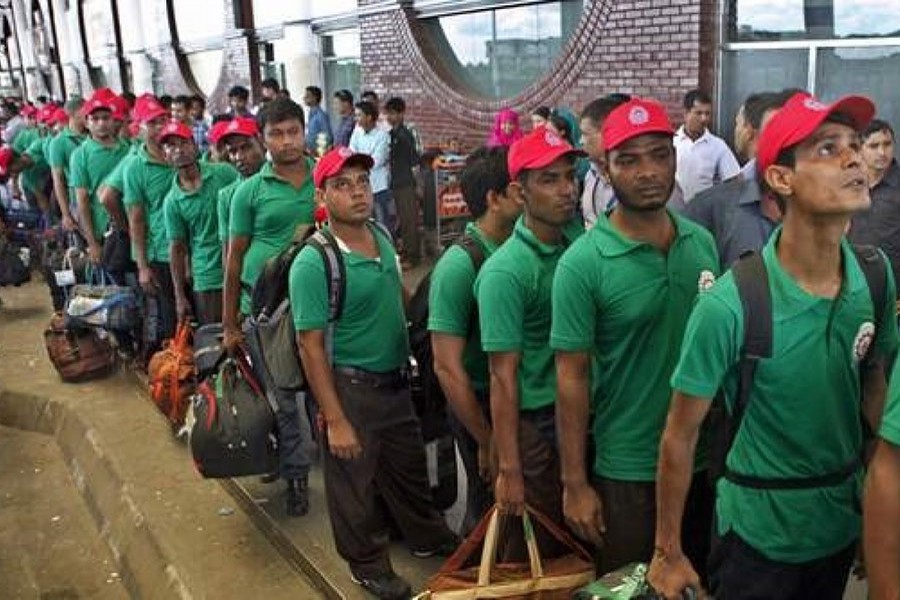The government should scale up budgetary allocations for the overseas employment sector to help ensure migrants' rights, activists said on Tuesday.
They also urged the authorities to implement the existing laws properly to protect migrant workers' interest making sure that migration is safe, orderly and responsible.
WARBE Development Foundation in collaboration with Solidarity Centre in Dhaka organised the consultation on 'Safe Migration as an Anti-Trafficking Agenda: Addressing Migration in Sustainable Development Goals' in Dhaka.
Presenting the keynote speech, national programme officer of the International Labour Organisation Rahnuma Salam Khan said the domestic workers were mostly venerable at workplaces and their protection must be ensured to achieve the SDGs.
"Government and non-government organisations will have to work together to address the challenges of achieving SDGs," she said. WARBE Development Foundation chairman Syed Saiful Haque said that migrant rights campaigners should raise voice globally to help enforce international laws on the protection of migrant rights.
He also emphasised necessary budgetary allocations for the welfare of the migrants contributing significantly to the overall development of the country.
"Although migrant workers are sending remittances to keep the country's economy vibrant, there is no visible investment from the government," he said, adding that adequate investment is necessary to ensure social protection of the migrants and their families left behind to achieve SDGs by 2030.
INAFI Bangladesh executive director Atiqun Nabi said that migrant workers and their family members are contributing a lot to the country.
The state must widen welfare and protection including healthcare, education and other social securities.
Joint secretary-general of the Bangladesh Association of International Recruiting Agency Shameem Ahmed Chowdhury Noman said that the government should conduct research to find out the causes of deaths of the migrants abroad and reduce the violation against the female migrant workers.


